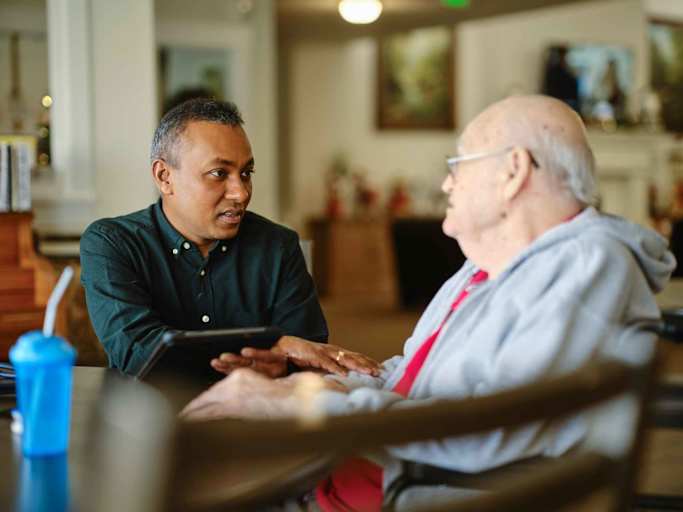Best Types of Psychology Degrees for 2025
Discover the best types of psychology degrees. This guide covers programs at every level, along with information on accreditation and potential career paths.Why Psycholology.org?
The Psychology.org team includes writers, editors, and contributing psychology students and professionals dedicated to helping you navigate the field. We follow a strict editorial and review process to ensure our content is up-to-date, factual, and relevant. Learn more aboutour editorial process.
- The best psychology degrees for 2025 include associate, bachelor’s, master’s, and doctoral programs, offering entry into fields like clinical psychology, behavioral psychology, forensic psychology, and counseling.
- Clinical psychology remains the most popular doctoral specialization, with 34% of psychology doctorates awarded in this subfield in 2023, according to the APA.
- When choosing a psychology degree, consider your career goals, specialization interests, and practical factors like cost, accreditation, and program delivery formats.
A psychology degree offers versatility, allowing you to pursue various careers and gain marketable skills. Whether you want to become a licensed clinical psychologist or land a career in business, education, healthcare, or social services, a psych degree can help you achieve your goals.
Explore the different psychology degree levels — associate, bachelor’s, master’s, and doctorate — and specializations in this guide.
Best Online Psychology Degrees
While many psychology students enroll in general psychology programs, most choose specializations to focus their learning on certain areas of the field. Undergraduates can become familiar with different psychology subfields through elective courses and projects.
Master’s and doctoral psychology degree students generally know which areas interest them and choose programs that align with their preferences. Most states require a graduate degree for licensure in some specialties, such as clinical and counseling psychology.
The following section explores several psych degree concentration areas, along with their education and licensure requirements.
Addictions and Recovery Psychology
Addictions and recovery psychology focuses on substance use and chemical dependency. These counselors help individuals recover from dependency with psychotherapy and behavioral counseling. A practitioner in this area must earn a master’s degree in counseling and may become a certified alcohol and drug counselor (CADC). Some states only require an associate or bachelor’s degree for lower-tier CADC credentials.
Substance use counselor schools typically integrate counseling, psychology, and social work classes. Students participate in clinical experiences, and coursework covers clinical assessment, diagnostic processes, and group facilitation.
Behavioral Psychology
Behavioral psychology employs psychotherapy to help patients overcome phobias and compulsions, along with anxiety, bipolar disorder, depression, post-traumatic stress disorder, and schizophrenia. The most common technique used by behavioral psychologists is cognitive behavioral therapy.
Practitioners in this specialty hold licenses as psychologists or professional counselors and earn master’s or doctoral degrees, depending on state requirements. Degree programs offer courses in assessment and diagnosis, intervention and prevention, psychological ideologies, and research design. The curriculum also includes clinical practicum and/or internship experiences.
Child and Adolescent Psychology
Child psychology studies the cognitive, emotional, and behavioral factors affecting children from infancy through adolescence.
Child psychologists can find employment as counselors, therapists, advisors, and researchers. While similar positions may require a minimum of a master’s degree, these specialists must hold Ph.D. or Psy.D. degrees to obtain state licensure and practice in clinical settings.
Clinical Psychology
A degree in clinical psychology focuses on evaluating, diagnosing, and treating mental health disorders through evidence-based interventions.To practice as a clinical psychologist, you must have a state license and a doctoral degree. Clinical psychology is one of the most popular specializations, with 34% of the psychology doctoral degrees awarded in the subfield in 2023, according to the Center for Workforce Studies at the American Psychological Association.
Graduate programs offer tracks that develop skills in working with different populations, such as elderly adults, children, and families. Students can also focus on particular disorders, including depression, substance dependence, and trauma.
Developmental Psychology
Developmental psychology offers insights for understanding the changes and challenges experienced across the lifespan. Specialists in this field treat developmental disorders related to specific stages of life, from childhood to old age.
Although developmental psychologists often need a doctorate and state licensure to provide patient services, bachelor’s or master’s degree holders may find employment in social work and counseling fields.
Educational and School Psychology
Licensed educational psychologists often conduct research, design curricula, and support educators in implementing the latest best practices in the classroom. Licensed school psychologists work directly with K-12 students and families, performing assessments, providing counseling, and supporting healthy development.
Employers prefer that educational psychology candidates hold doctorates in this field, especially for careers as professors and researchers. School psychologists commonly hold a specialist-level degree or master’s in education.
Family Counseling
Family counseling focuses on family members with communication issues and conflicts. Practitioners use psychotherapy to help parents, guardians, children, and partners build stronger connections, manage stress, and cope with grief, mental illness, and addiction.
Family counselors hold licenses as psychologists or professional counselors, which require a master’s or doctoral degree, depending on the state. These professionals can pursue certification from organizations like the American Association for Marriage and Family Therapy.
Graduate-level family counseling programs emphasize assessment and case management; counseling techniques and interventions; history and development of marriage, couple, and family counseling; and theories and models of family systems and dynamics. Clinical components allow students to apply theoretical concepts in real-world contexts.
Forensic Psychology
The criminal justice and legal systems increasingly rely on forensic psychology. Psychologists trained in forensics may provide mental health assessments in trials, prisons, and rehabilitation facilities, offer expert testimony in civil and criminal cases, and assist in criminal investigations.
Most forensic psychology positions require at least a master’s degree, in addition to state licensure and professional certifications.
General Counseling Psychology
From 2004-2023, 31% of psychology master’s graduates specialized in counseling psychology. A master’s degree-holder can become a counselor but must earn a doctoral degree and a license to practice under the title of “psychologist.” Master’s psychology degree graduates can work in human resources, organizational development, and mental health or addiction counseling.
Counseling psychologists help clients with everyday issues, including handling adversity, managing interpersonal conflicts, and improving their coping skills. They also offer educational and career development advice.
Generally, master’s programs in counseling psychology and Ph.D. degrees emphasize research, while master’s-level and Psy-D. counseling psychology programs prepare graduates for practice.
General Psychology
General psychology typically refers to the study of psychology at the bachelor’s level. A bachelor’s psych degree can lead to careers in non-clinical counseling or social services. Degree holders can also pursue graduate study to become licensed in counseling, social work, or psychology.
Undergraduate psychology degree seekers learn counseling strategies, analysis of individuals, research skills, and human behavior and development. The curriculum also includes general education courses in sciences, math, and humanities. Psychology degree bachelor’s programs may feature practicums or internships.
Graduates of psych degrees pursue positions as addiction counselors, employment counselors, human resource specialists, and social and community services managers.
Health Psychology
This field explores the psychological, social, and biological factors that can affect mental and physical health. Graduates enter fields as varied as pain management, behavior assessment, and community and public health.
A health psychologist should hold a doctorate and a state-issued clinical license. An undergraduate degree, while offering fewer career options, may lead to employment as a mental health counselor or rehabilitation specialist.
Organizational Psychology
As one of the fastest-growing fields in the discipline, industrial-organizational psychology applies psychological theories and techniques in work environments to improve employee performance, satisfaction, and safety.
Although some bachelor’s degree-holders may enter the field in training and facilitating positions, most industrial psychologists have earned advanced degrees to conduct research, testing, and assessments.
Industrial-organizational psychologists often serve in consulting roles to address issues like leadership development, team-building, and workplace diversity.
Social Psychology
This branch of psychology examines how human thoughts, beliefs, and behavior are shaped by applied or imagined interactions with others. Social psychologists explore prejudice and implicit bias, interpersonal conflict, bullying, and group dynamics.
They apply their knowledge in industry, government, social services, and educational settings. Most careers in social psychology require a doctorate with an emphasis on research and assessment.
Sports Psychology
Sports psychology develops applications that help athletes overcome mental challenges to achieve their full potential.
Different Types of Psychology Degrees
Students can pursue psychology degrees at every level. Associate psych degrees provide an excellent introduction to the field and may open opportunities in entry-level human services jobs.
Bachelor’s-level psychology degree programs include general education and foundations of psychology courses. Bachelor degree-holders often continue to graduate study, although they can become licensed counselors in some states and work in human services or human resources.
Master’s psychology degree programs offer specializations and are an intermediate step between a bachelor’s and a doctorate. Students who earn master’s degrees in psychology can pursue work as licensed counselors and therapists. Psychologists need doctoral degrees to offer psychotherapy and work independently in clinical settings.
Associate Degree in Psychology
With an associate psychology degree, you can pursue many career options. You can work in social and government services, sales and marketing, corporations or nonprofits, or administration in a psychologist’s office.
Most associate-level psych degree programs take just two years, making them the quickest available option. They are also among the most affordable. You need a high school or GED certificate to apply. Most community colleges that offer an associate degree use open admissions policies but may recommend a specific GPA to qualify.
Bachelor’s Degree in Psychology
A bachelor’s degree can start you on the path to eventually earning a Ph.D. in psychology. Common sectors for someone with a bachelor’s psychology degree include government, management, sales, human resources, and human services. You can earn your psych degree on campus, in a hybrid program, or online.
You can earn a bachelor of science (BS) or bachelor of arts (BA) degree in psychology. A BA is often based in the liberal arts and offers a broader area of focus. BS programs focus more on research and theory.
Most master’s in psychology degree programs and employers accept either degree. Earning a bachelor’s psychology degree takes around four years. You must have a high school diploma or GED certificate to apply.
The recommended GPA depends on the school and its admission requirements.
Master’s Degree in Psychology
Depending on the state, you can become a counselor or therapist with a master’s in psychology degree. With this degree, you can also work in human services, consulting, or the government.
Many master’s students plan to continue their graduate studies with doctoral degrees in psychology, ultimately aiming to become psychologists.
Like a bachelor’s degree in psychology, you can earn a master of science (MS) or a master of arts (MA) for your advanced psych degree. The MS focuses more on research and theory as an ideal preparation for an academic career. A master’s in psychology typically takes 2-3 years to complete. Most schools require at least a 3.0 GPA for admission.
Ph.D. Degree in Psychology
Graduates with psychology Ph.D. degrees can pursue careers and licenses as clinical psychologists, but the Ph.D psychology degree focuses more on teaching and research, particularly in higher education. Compared to Psy.D. degrees, Ph.D. programs typically take longer to earn (4-7 years), and admission can be more selective.
Ph.D. curricula focus on research, statistics, teaching, and theoretical knowledge. Students develop original research topics and complete dissertations. They also tend to receive more funding than Psy.D. students. Common sources include teaching and research assistantships, fellowships, and stipends.
Graduates of doctoral psych degree programs can provide direct clinical psychology services, work in specialty areas like industrial-organizational psychology, hold government positions, become university professors, and conduct research in public and private settings.
Psy.D. Degree in Psychology
Students interested in clinical practice can opt for Psy.D. degrees. These programs take less time to complete than a Ph.D. (usually five years or fewer) and focus more on assessment strategies and intervention within diverse cultural, economic, and social populations. The curriculum in these psychology degrees typically includes a doctoral research project and 2,000-3,000 clinical hours.
Clinical psychologists often specialize, helping individuals and groups within a demographic, such as aging adults, children, couples and families, or women. They perform psychotherapy in clinics, health centers, hospitals, and private practice. They may also perform clinical psychology research in laboratories, medical centers, and universities.
A Psy.D. qualifies graduates to pursue licensure, which enables them to practice independently and use the title of psychologist. Programs prepare students to pass the Examination for Professional Practice in Psychology.
Q&A With Megan Pietrucha, Psy.D.

Megan Pietrucha is a licensed clinical and sport psychologist in private practice. She specializes in eating concerns, body image, and college student and athlete mental health. Pietrucha also works with people experiencing mood disorders, life transitions, stress management, and performance psychology.
What advice would you give to prospective students who are determining what level of psychology degree is best for them?
Start with the end in mind when contemplating a psych degree. Consider what type of work you might like to do, the population you might want to work with, and what setting you see yourself working in. This can help you decide which level or degree is best for you. If you aren’t sure which level of degree is best for you, take it one step at a time. Pursue a master’s psychology degree before you decide on a doctorate.
What are some common misconceptions students may have about pursuing a psychology degree?
The first misconception might be that working within the psychology field is not necessarily very lucrative without higher education. Pursuing a master’s or doctorate gives you more career opportunities and earning potential. Secondly, without a master’s or doctorate psychology degree, you will be limited in the types of client services you can provide. For example, to provide therapy, you will need at least a master’s psych degree and licensure.
How can students interested in specific psychology subfields tailor their academic path at different degree levels to specialize in these areas?
Students can seek out psychology degree programs that offer concentrations in specific subfields, or they can seek out training experiences with this specific focus. Additionally, tailoring research papers or projects to your interest area can help you gain foundational knowledge.
How to Choose the Best Psychology Degree
Deciding where to begin your journey in psychology may seem like an overwhelming task, but Pietrucha suggests that learners work backward from their primary goals. Knowing your goals can help you determine which psych degree programs will be necessary throughout your education.
An undergraduate psychology degree can provide a solid foundation for many fields and prepare you for doctoral study. A master’s psychology degre offers opportunities to specialize or focus on general psychology while exploring your interests. Doctoral psych degrees can provide entry to clinical practice, state licensure, board certification, and careers in academia and research.
Factors to consider include your current education level, the length of time you want to spend in school, your current career, whether you want to make a career change, and your potential interest in a specialization.
Once you’ve narrowed your goals, you can research psychology degree programs. Important criteria include accreditation, cost, course delivery (online, hybrid, or on-campus), location, and admission requirements.
Frequently Asked Questions About Psychology Degrees
Accreditation ensures that schools and programs meet established standards of quality developed by independent accreditation organizations. The American Psychological Association (APA) is the primary accrediting body for doctoral programs. While it does not accredit undergraduate or online programs, APA has developed curriculum guidelines for postsecondary degrees.













